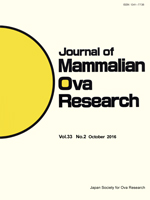A new prenatal genetic testing technique using cell-free fetal DNA in maternal plasma, the Non-Invasive Prenatal Test (or NIPT), was introduced in Japan in 2013. The NIPT is easy and safe but not definitive; it also has high sensitivity and specificity under certain conditions. In the near future, it could be used not only for detecting chromosomal aneuploidy, but also complete genome analysis of the fetus. However, termination of pregnancy is the only option for those wanting to avoid having a baby with a chromosomal anomaly or a genetic disease. Given this situation, this review explores the ethical and social issues surrounding prenatal genetic testing focusing on three points: 1) selective abortion as an ethical issue, 2) informed consent and decision making, and 3) alternative perspectives on prenatal testing.
How to translate text using browser tools
1 October 2016
Ethical and Social Implications of Current Prenatal Genetic Testing
Azumi Tsuge
ACCESS THE FULL ARTICLE
It is not available for individual sale.
This article is only available to subscribers.
It is not available for individual sale.
It is not available for individual sale.
Disability rights movement
NIPT
Prenatal genetic testing
selective abortion
Women's decision making
Wrongful birth trial





